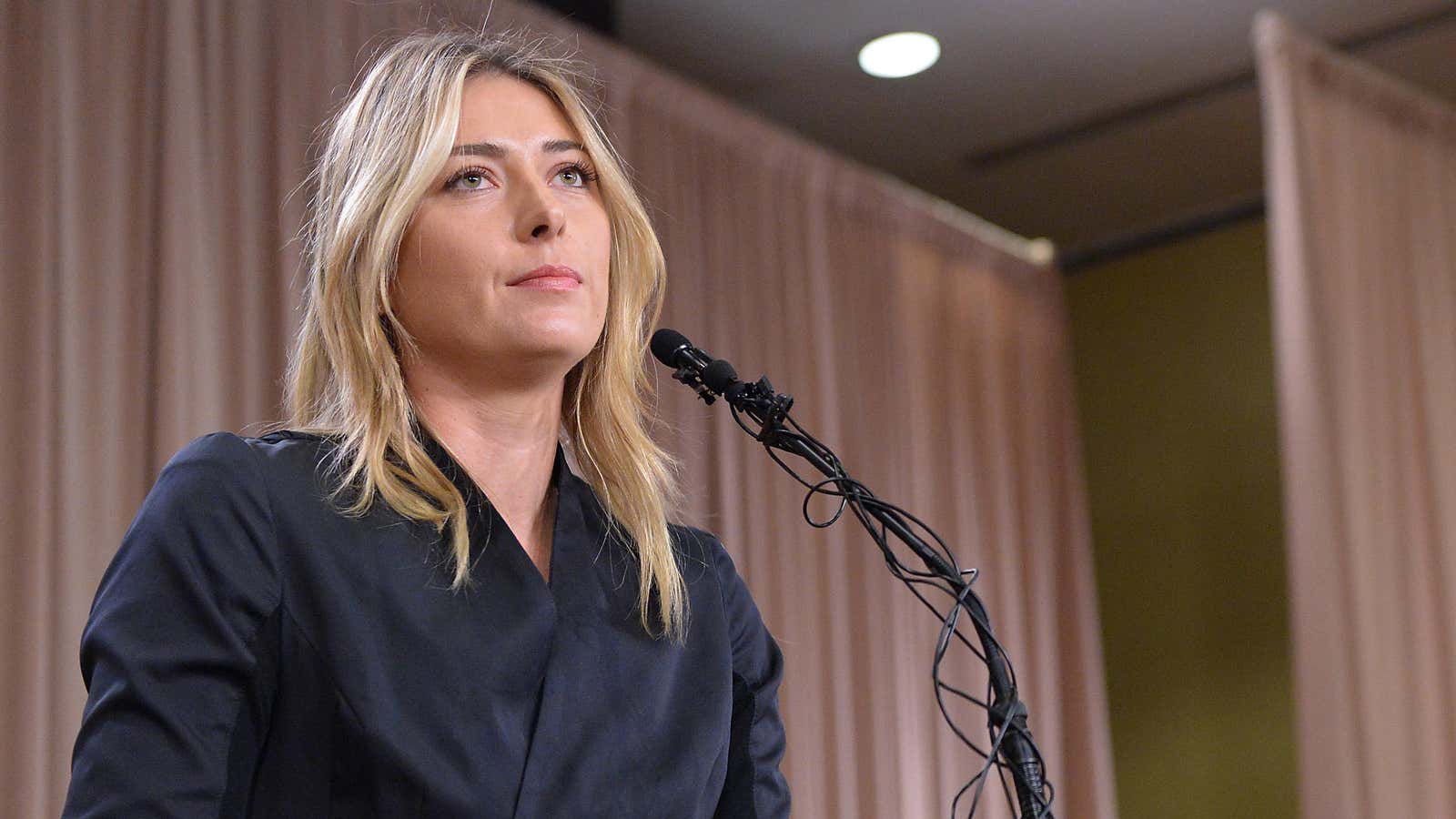Sponsors are already beginning to distance themselves from Maria Sharapova after the tennis star announced at the Australian Open yesterday (Mar. 7) that she had tested positive for a performance-enhancing drug.
So far, Nike, Tag Heuer, and Porsche have all said they’re “suspending” their relationships or postponing any further activities with Sharapova. She is currently the world’s highest-earning female athlete, but the vast majority of her earnings come from lucrative sponsorship deals. According to Forbes, she earned $6.7 million in salary and winnings between June 2014 and June 2015, but $23 million from endorsements, putting her far ahead of the world’s top-ranked female tennis player, Serena Williams. Those deals are now in jeopardy, as sponsors try to protect their brand images.
Nike, which in 2010 signed Sharapova to what was reportedly the largest deal a female athlete had ever received, worth $70 million over eight years, announced its decision last night. “We are saddened and surprised by the news about Maria Sharapova,” the company said in a statement. “We have decided to suspend our relationship with Maria while the investigation continues. We continue to monitor the situation.”
Tag Heuer, the luxury watch brand, says its contract with Sharapova only ran through 2015, and it was in talks to extend that contract. Those talks have now been put on hold.
Porsche similarly said, “Until further details are released and we can analyze the situation, we have chosen to postpone planned activities.” The phrasing of Porsche and other brands’ statements appear to leave room for a reassessment once the outcome of Sharapova’s situation is clear.
Sharapova also has deals with other brands, including Evian, American Express, and Avon, though none have made announcements yet.
The drug Sharapova tested positive for is called meldonium. It promotes blood flow and oxygen uptake in patients with heart disease, but that same property also allows it to increase endurance in athletes. Sharapova said she had been taking it legally for a decade, after a family doctor prescribed it to her for health conditions under its other name, mildronate. It was only banned in January, and Sharapova says she simply didn’t click the link in the email she received from the World Anti-Doping Agency detailing the newly prohibited drugs.
Sharapova has been provisionally banned from tennis, and faces a ban of up to four years. Some have already come to her defense in the matter, including her former coach and tennis legend Martina Navratilova, who first spotted Sharapova in Russia, saying it seems to be an “honest mistake.”
But brands are skittish about their sponsorship deals. Fans may see the headlines and skip Sharapova’s justification. She’s arguably more valuable for her image than her play, and anything that tarnishes that image is a liability for the companies backing her. If she is banned for a period, that’s also money they’re spending without Sharapova providing the exposure they signed her up for.




